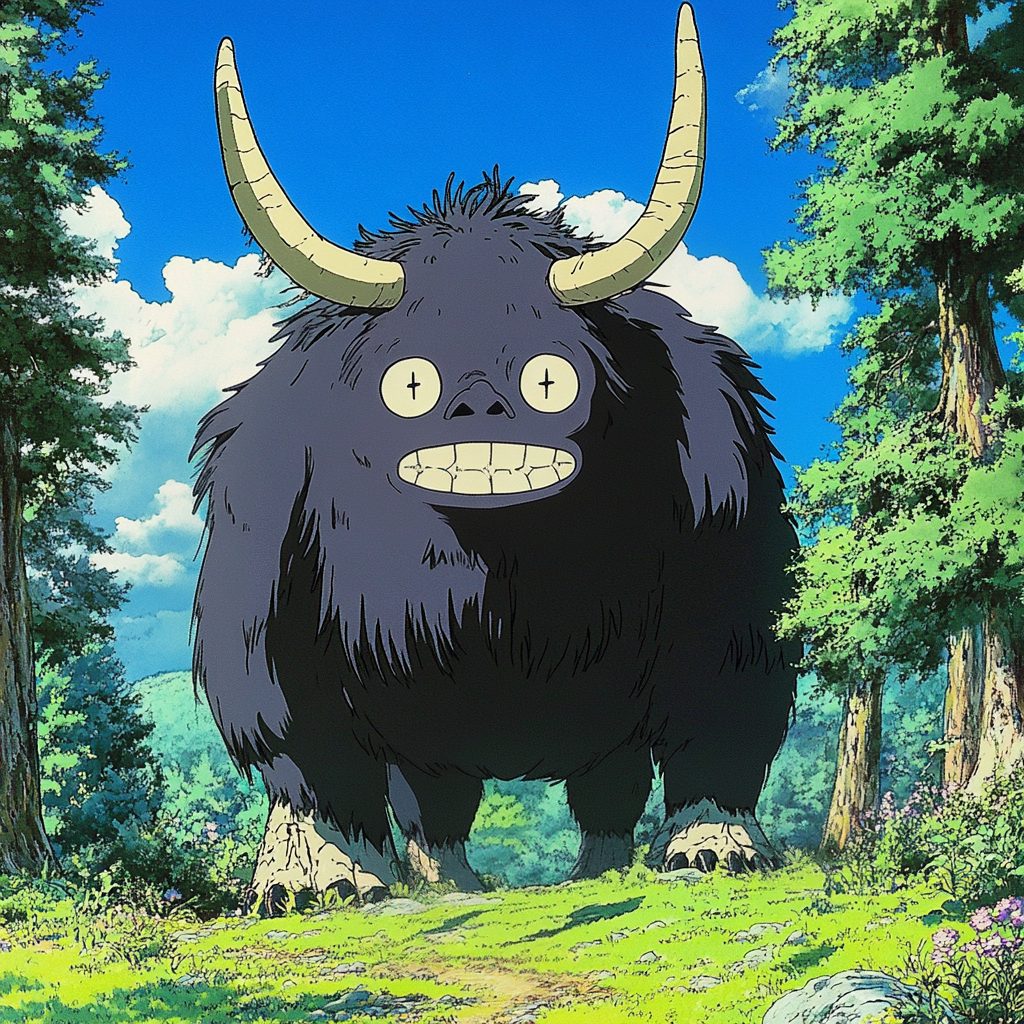In the forest beyond the mountains, where tall trees whispered and the wind carried the scent of moss and pine, lived a creature named Obu.
He was large — towering, really — with shaggy black fur like midnight fog and eyes as round and wide as full moons. His horns curved high, and his smile, though soft and honest, unnerved people.
But what truly startled them was his laugh. It was loud. Deep. Rolling like thunder through the trees. He laughed often — not at anyone, just at the rustling of birds, or the way leaves danced in the wind. But villagers heard it and shivered. They said it sounded wrong — too big, too bold. “That’s not a kind laugh,” they whispered. “That’s a beast’s howl.”
So they called him names. Said he brought misfortune. Warned children to hide if they heard his footsteps or that echoing laugh through the trees. Obu heard it all. And yet, he never answered with anger. Instead, he moved gently through the woods.
He plucked herbs for healers when they ran out. He stood still as a boulder during windstorms, shielding homes without a word. He left bunches of berries beside broken windows or sagging doors.
Never seen. Never thanked. But still, they judged him. “He’s not like us,” some muttered. “That grin. That coat. That laugh.” “That kind always causes trouble.” They never said what kind they meant. But Obu understood.
Still, he never turned bitter. He kept laughing, softly, into the treetops. He knew they feared his sound, but it was the only voice he had — and it had never meant harm.
Then came the flood. A week of rain turned the river wild. The banks broke. Water surged through the valley, fast and merciless. Crops vanished. Trees toppled. People scrambled for shelter. In the chaos, a child was swept away. No one saw where they went — except Obu. He dove into the current without hesitation. His body fought the river’s pull. His horns cut through the waves.
When he returned, scratched and soaked, he held the child above the water with great care. The villagers stood frozen. The wind was quiet. Even the trees seemed to hold their breath. And then — as the child reached their mother’s arms — Obu laughed. A low, thunderous sound, full of joy and relief. The same laugh they once feared. But now… it didn’t feel scary. It felt warm.
After that, things changed. Children no longer ran when they saw him. They waved. And he laughed — always loud, always honest. When berries appeared on windowsills, people smiled instead of locking their doors. The healers left thank-you bundles under trees.
And when Obu passed through town, someone always said, “Let him be. That’s Obu. He’s a good one.” “If you’re ever lost,” parents told their children, “look for Obu. He’ll see you first.” Because he always had.
And in time, they began to understand:
You must judge your fellow with justice — not by what you see, not by how they sound, but by what they do.
Obu had always known that. Now, they did too.
